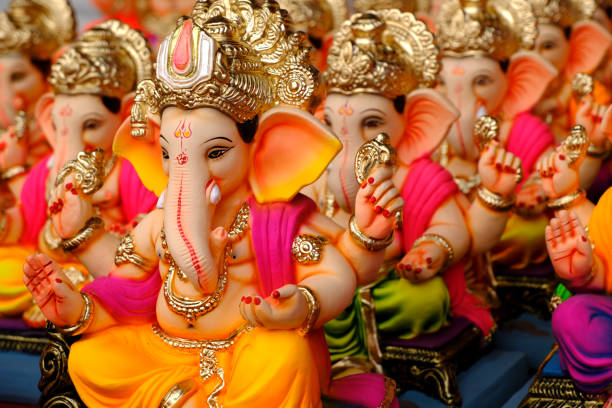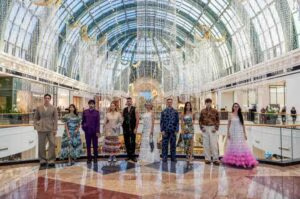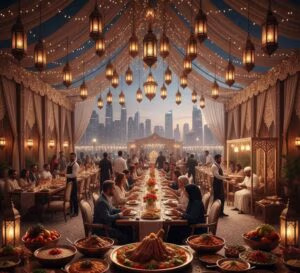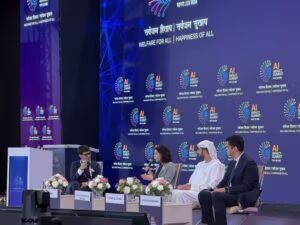Ganesh Chaturthi 2025 is being celebrated with devotion and grandeur across India and among the Indian diaspora worldwide. From the bustling pandals of Mumbai and Jaipur’s historic temples to cultural gatherings in Dubai, the festival once again highlights how the spirit of Lord Ganesha unites communities across geographies.
Mumbai: Tradition Meets Creativity
In Mumbai, the heartbeat of Ganesh Chaturthi, the city’s most iconic idol, Lalbaugcha Raja, was unveiled in majestic maroon attire beneath a golden canopy. Millions of devotees lined up for over 24 hours for darshan at the famed pandal.
At the Shree Siddhivinayak Temple, the early morning aarti drew thousands of worshippers, their chants of “Ganpati Bappa Morya” echoing across the city. Meanwhile, homes across Mumbai showcased remarkable creativity with unique Ganpati setups ranging from miniature autorickshaws and railway stations to replicas of the upcoming international airport, blending artistry, social narratives, and devotion.
Jaipur: Heritage Enriched with Technology
In Jaipur, the revered Moti Doongri Ganesh Temple welcomed devotees with the idol adorned in a gold crown set with diamonds and emeralds. To make the celebrations inclusive, the temple offered live darshan streams, allowing devotees across India and abroad to participate virtually.
Authorities introduced special traffic and safety measures around the temple precincts, ensuring seamless movement for pilgrims as crowds swelled throughout the day.
Dubai: A Festival Away From Home
For the 3.5 million–strong Indian community in Dubai, Ganesh Chaturthi is a reminder of home and heritage. This year, the newly built Hindu Temple in Jebel Ali became a focal point for celebrations, hosting Ganesh Sthapana rituals, devotional singing, and evening aartis. The temple drew large gatherings of expatriate families seeking to mark the festival together in a traditional setting.
In addition, community groups across Karama, Al Nahda, and Discovery Gardens organized smaller pujas and cultural programs, while many families brought idols into their homes for private worship. Eco-friendly immersion practices—such as artificial tanks and water pools ensured the rituals complied with UAE regulations while promoting sustainability.
Indian restaurants across the city also joined in with festive thalis and sweets, adding a culinary flavor to the celebrations. For the diaspora, the festival is as much about cultural continuity as it is about devotion, offering younger generations in Dubai a chance to experience the traditions of their homeland.





